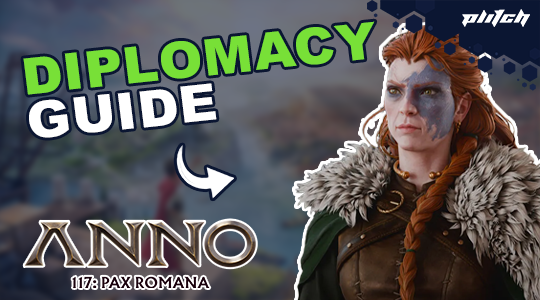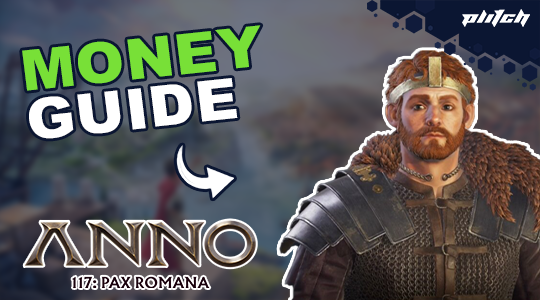Trade is the heart of your empire in Anno 117. It keeps your production chains alive, your citizens supplied, and your Credits flowing. Our Anno 117 Trade Guide shows you how manual trading works, how to automate your routes, how to profit from passive deals, and which research and gods turn you into a true trade powerhouse.
Table of Contents
Basics
Trade in Anno 117 is the key that keeps your empire going. You can have the best city layout in the world, but if you ignore trade, your supply chain will break down. Each island has its own fertility, which means you’ll always miss something. One island produces Lavender and Grapes, while another has Olives and Flax. No single island can do everything. That’s where your trade network comes in.
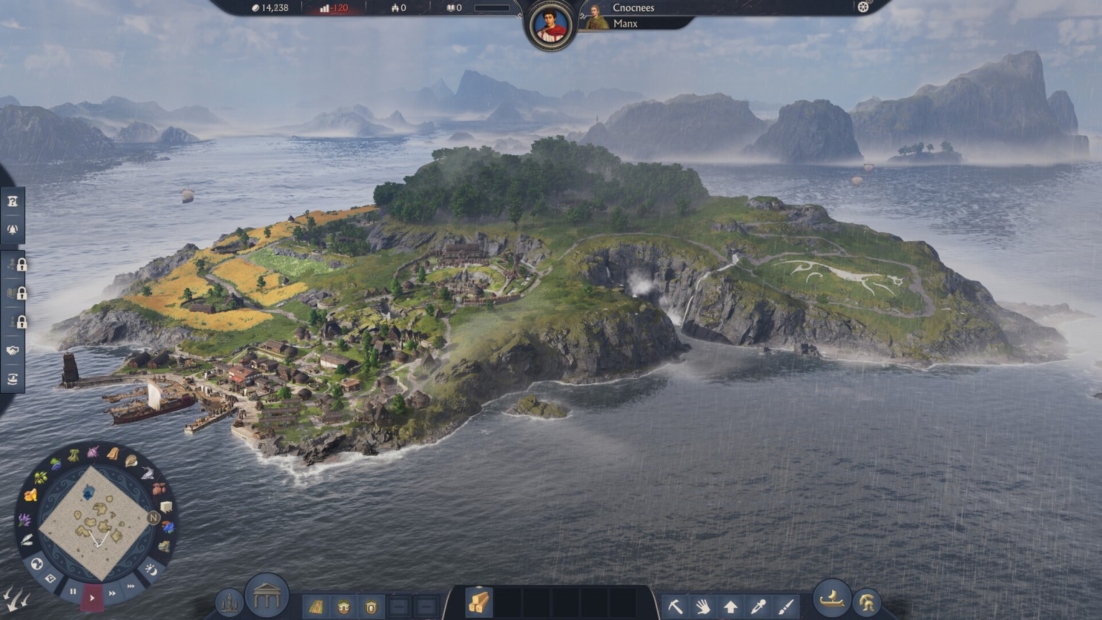
If you settle on a new island or buy goods from NPCs, you fill the gaps in your production lines. Maybe you ship Amphorae and Olives from one island and send Mackerel back in return. These small loops keep your residents happy and prevent your city from falling apart when demand spikes.
It gets even better once you expand across provinces. The sunny fields of Latium produce top-tier Wine. Albion, on the other hand, is the only place where you can get Cheese. Your Equites love Cheese, and Albion loves Wine, so everyone wins. Switching between provinces is easy. Use the buttons at the top of your trade screen or hit the globe icon on your mini map.
Manual and Active Trading
Sometimes you just need a quick fix. Maybe your Wine stock in Anno 117: Pax Romana drops to zero, or your Olives run out. Manual trading is perfect for these moments. Load a ship with whatever you have too much of and sail straight to neutral traders like Diana or Valeria. They buy almost anything, and you get instant resources without setting up a full trade route.
For anything more serious, you switch to active trading. This is where trade routes carry your entire empire. You assign specific cargo slots for each good, designate a ship, and the route runs in a loop. Your ships load on one island, unload at the next, and keep your warehouses stocked without constant supervision. It’s the cleanest way to automate the grind and avoid panic production.
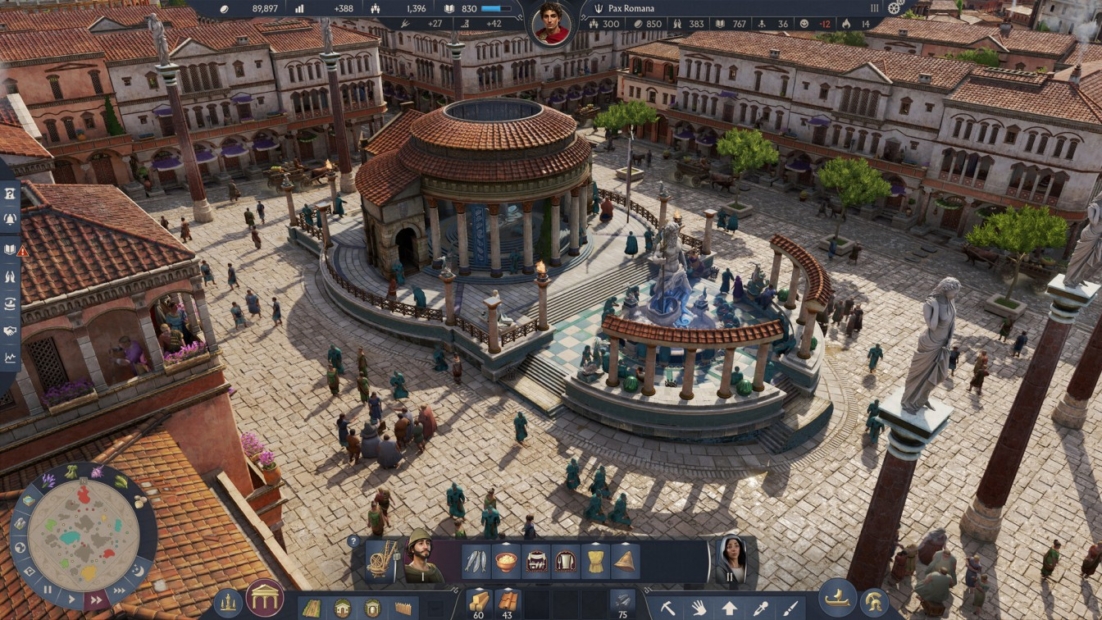
Trade routes in Anno 117 excel when you manage multiple island cities or expand across provinces. You can automatically transport Amphorae, Wine, Cheese, Olives, or any other resources you need. If something fails, it’s usually because your ship has no cargo space left or your trading post is full. Keep an eye on both to prevent supply chain issues.
If you prefer a more diplomatic approach, you can make deals with other governors. Trade Treaties unlock access to their markets. Once you befriend them, you can use your Trading Post to set automatic buy or sell orders. Fixed prices provide a steady income or drain your storage when it gets too full. It is passive money and resource management in one simple system.
Here is a quick breakdown:
- Manual Trading: Best for emergency resource grabs; needs a ship with cargo space
- Trade Routes: Best for stable supply chains across islands; needs multiple islands and a dedicated vessel
- Diplomatic Trading: Best for rare items and passive income; needs a Trade Treaty with your neighbor
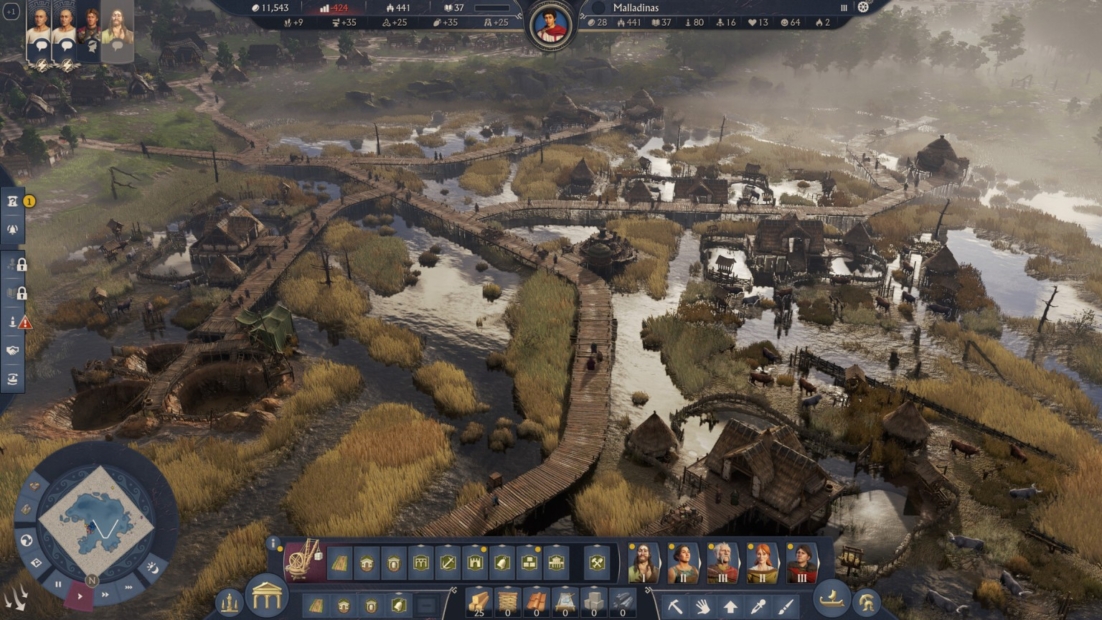
If you send your ship into dangerous waters, consider escorting it. Pirates and hostile players seek easy loot. A military guard ensures your supply chain isn’t disrupted mid-route.
Passive Trade
Passive trade is the laid-back cousin of active trading. You set it up once, and it quietly makes money in the background while you focus on your cities, your armies, or whatever just caught fire on your island. Open your Trading Post and check the resources stored on that island. Each item can be set to auto buy or auto sell. You choose when it activates.

Maybe your sheep storage is full. Instead of letting space go to waste, set a sell threshold. Anything above that amount is sold to neighbors who have a trade treaty with you. Their ships arrive automatically, and you make easy money. Just be sure to set a minimum amount so you never run out on your own island.
The same applies to buying. If you need wood, wool, or anything your allies offer, place a passive buy order and forget about it. Your Trading Post will collect the goods whenever there is space and funds available.
Research for Better Trade
If you want your empire in Anno 117 to become a true trading powerhouse, you need the right research. The Economic Tree is full of upgrades that make your routes smoother, your storage larger, and your ports faster. A few early choices already make a huge difference, especially once your ships start moving between multiple regions.
Depots
This upgrade adds extra storage buildings to your island. More storage allows you to hold larger stockpiles, making passive and active trading much more efficient. If you like big numbers in your warehouse, this is the one.
Trading Post Improvements
Your Trading Post can get crowded quickly. This update adds extra ramps so more citizens can deliver goods at the same time. Less traffic means faster loading and unloading. It also increases island storage, helping your trade routes operate smoothly without clogging.
Pier to Pier Trading
Think of this as a second Trading Post. More piers let more ships arrive or depart simultaneously. If you operate multiple trade routes or depend heavily on diplomatic trading, this upgrade improves everything.
Seaport Specification
This is late-game content, but it’s worth every research point. You can designate which ships use specific stations and fully control how goods move through your docks. It helps prevent chaos when your empire spans Latium, Albion, and everything in between.
Repair Cranes
Trading ships can get damaged. Escorts also get damaged. Pirates never take a day off. Repair Cranes save you time by letting you fix ships right at the port. No need to send half your fleet home just to patch one hole.
Pick the Right God
Your Patron choice in Anno 117 greatly influences how smoothly your trade empire operates. Some gods enhance production, others support in battle, but a few are specifically designed for players who want to dominate the seas and accumulate Credits through savvy trading.
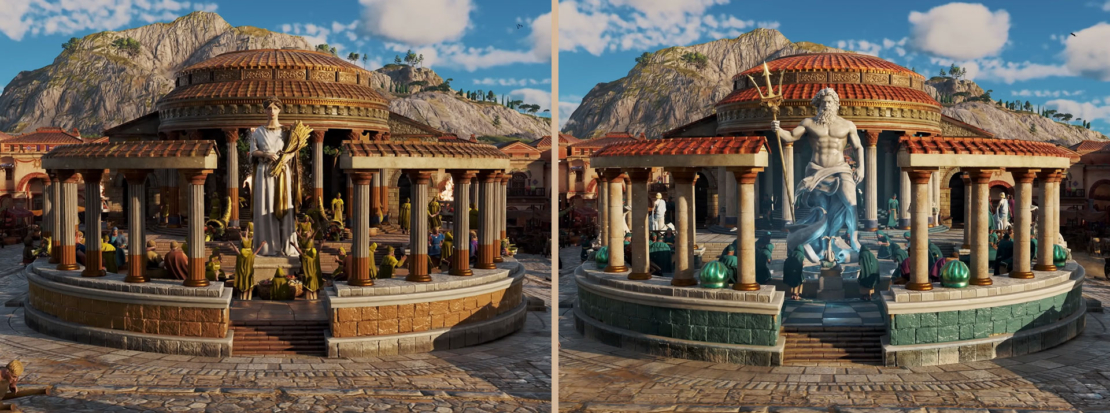
If you want to focus on trade from the beginning, Neptune is your top choice. New ships have extra durability and lower maintenance costs, allowing you to build your fleet early without exhausting your entire budget. Neptune also increases Garum production, which is ideal for passive trade. Garum sells well, ships quickly, and helps you establish a consistent early income stream that supports rapid expansion.
Once your empire expands and your routes cover multiple regions, you can change your approach. Mercury Lugus is an excellent late-game option for any trade-focused run. This Patron enhances passive trade, boosts the value of your harbors and trading posts, and grants you prestige in all the right areas. If your cities earn money by moving goods rather than producing everything themselves, Mercury Lugus provides a significant power boost.
Anno 117 Trade Made Easy with PLITCH!
If you want to expand your trading empire further, the PLITCH Anno 117 Trainer provides powerful tools to eliminate every bottleneck. When you need a quick financial boost to grow your fleet or upgrade your ports, Add Credits and Mega Income keep your economy operating at full capacity. For quicker stockpiling, Min 50 percent of all resources, Max all resources, and similar harbor tools help you instantly fill your warehouses, ensuring your trade routes never stall.
Research-heavy playthroughs benefit from the Set research multiplier, letting you unlock key trade techs much earlier. If you want to build a prestige-focused empire, Mega prestige and All needs fulfilled give your cities the push they need to thrive. With PLITCH, every part of your trade network becomes faster, cleaner, and easier to manage.
Check out our Anno 117 Trainer Showcase on YouTube to see these codes in action!
Happy Gaming!
Check out our other Anno 117 guides:

